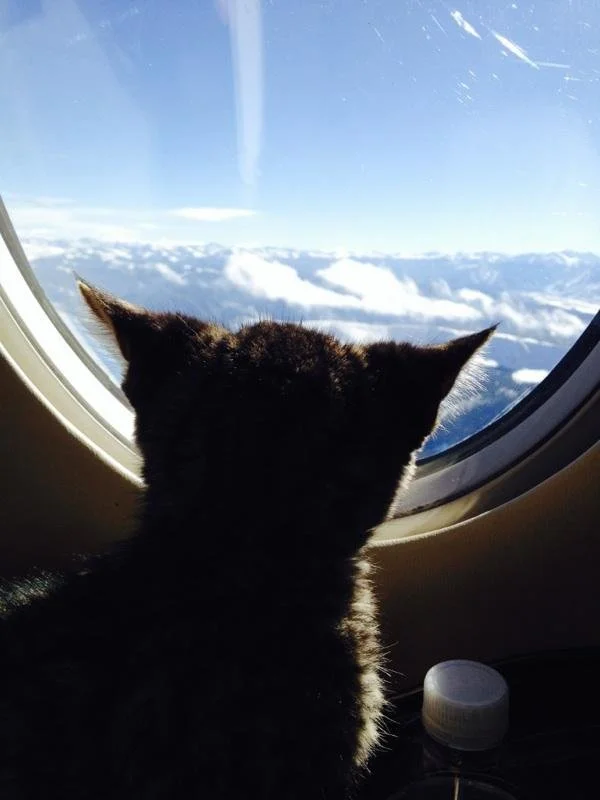Moving to a new city with pets can be thrilling and challenging. If you intend to move to Chicago with your furry companions, there’s a lot to think about. While Chicago's vibrant atmosphere welcomes pet owners, you still should understand the local pet regulations before deciding on a move.
From navigating the city’s pet laws to finding the right housing, this guide will help you prepare for life in the Windy City.
Legal Requirements & City Ordinances
First, let's talk about the rules. Chicago takes pet ownership seriously, and understanding local laws is critical. All dogs over four months old must be registered with the city and have a current rabies vaccination. You can easily register your dog and obtain a license through the City Clerk's office or website. To receive the latest vaccinations, visit any state-licensed veterinarian.
Moreover, there are pet ownership limits in Chicago, particularly in certain housing types like condos or apartment complexes. These limits vary by location and building rules, so review your lease agreements before bringing multiple pets. As for legal protections, pet owners should always be aware of their rights.
One of the main rules to note is the city’s strict leash laws. Pets must be on a leash in public spaces unless in designated off-leash areas like dog parks. Last year, the West Chicago City Council implemented new ordinances to address aggressive pets. An aggressive animal is defined as any animal that behaves in a way that threatens the safety of other animals or people. This includes behaviors such as growling, lunging, or biting.
If the pet displays aggressive behavior in public, failing to control it can result in significant fines, especially if injuries occur. First-time offenses will cost up to $500, second-time offenses up to $1000, and third-time offenses up to $1500. Any infractions that follow can cost up to $50,000. In such scenarios, you may be in a complex legal situation.
Chicago's leash laws and ordinances on aggressive animals are in place to protect you, the public. Unfortunately, not all pet owners are diligent, and you might find yourself in a situation where an unleashed or aggressive dog attacks you.
If you're injured by someone else's pet, remember you have rights. This is where consulting the best personal injury lawyer in Chicago can be beneficial.
They can help you understand your rights, navigate legal proceedings, and secure fair compensation for the injuries you’ve sustained. Having expert guidance ensures that both your rights and your pet’s well-being are protected in challenging circumstances.
TorHoerman Law reveals that a skilled lawyer will help you understand the local ordinances and ensure compliance, potentially preventing future issues. Remember, being proactive about understanding your legal obligations as a pet owner can save you a lot of stress and financial burden.
Pet Healthcare and Veterinarian Access
Once settled in Chicago, securing quality veterinary care for your pets should be on top of your to-do list. The city has many veterinary clinics, but it's advisable to register with a local vet as soon as possible. This ensures you have a go-to expert for routine care, vaccinations, and emergencies.
For emergencies, locate a 24-hour vet clinic near your new home. These clinics offer around-the-clock services for unexpected health issues, which can be crucial for pet owners in a big city. If you’re worried about vet costs, pet insurance is another option. Given the high healthcare costs, insurance can provide peace of mind during a serious illness or accident.
Choosing the Right Pet-Friendly Housing
Finding pet-friendly housing in Chicago can be difficult, especially with the city’s varied rental and condo rules. Many apartment buildings have strict rules regarding pet sizes and breeds. Some landlords even prohibit large dogs or certain breeds, like Pit bulls and Rottweilers. Before committing to a lease, check to see if there are any breed restrictions applicable to your pet.
Additionally, expect to pay pet deposits or monthly pet fees in most rental agreements. These fees help cover potential damage caused by pets and are typically non-refundable. However, the rule doesn't apply to service and emotional support animals. It’s imperative to fully grasp the specifics of your lease to avoid any surprises later on.
If you plan to buy a home, consider condo homeowners’ associations (HOAs). Many HOAs have pet regulations, which might include limits on the number of pets, weight restrictions, or specific pet behavior rules. Always double-check the paperwork before reaching any agreements.
Chicago’s Pet Transport and Travel Policies
Getting around Chicago with pets, especially during a move, is another area where it’s essential to understand local rules. The Chicago Transit Authority (CTA) allows pets to ride public transportation. However, they should be contained in a secure carrier small enough to fit comfortably on your lap or under the seat.
Moreover, carriers aren’t permitted to occupy extra seating and should not obstruct seating areas and pathways. Furthermore, larger pets, such as big dogs, may not be allowed on public transit, so plan your travel accordingly.
Emotional support animals may have more lenient transportation rules. However, they still require documentation and should be trained for public spaces. For those driving into or around Chicago, ensure your pet is safely secured in the vehicle.
Finally, if you're staying in temporary housing, such as hotels or Airbnb, during your move, double-check their pet policies. Some places might advertise themselves as pet-friendly but impose strict rules about where pets can be in the building.
Safe Outdoor Spaces and Socialization
Chicago offers many outdoor spaces where pets can exercise and socialize. But it’s important to know which ones are best for your pets. The city has numerous off-leash dog parks, like Montrose Dog Park, where pets can roam freely. However, these spaces require that dogs be vaccinated, so make sure your pet is up-to-date on shots before heading out.
In addition to dog parks, Chicago hosts pet-friendly events throughout the year, such as adoption fairs, pet parades, and local festivals. These events are great for meeting other pet owners and letting your furry friends socialize. However, remember that urban environments pose unique safety risks. Streets can be busy with traffic, and cold winters mean keeping your pets warm and safe with proper clothing like pet booties. Always be mindful of your surroundings to ensure your pet stays safe during walks.
Commonly Asked Questions
Q1. What are some unique challenges of having a pet in a city like Chicago?
City living with a pet comes with its set of quirks. You might encounter limited green space, noisy environments that can startle your pet, and stricter rules about where your pet can go. But with some planning and understanding, you and your furry friend can make the most of it.
Q2. How much does it cost to register a pet in Chicago?
Pet registration fees in Chicago vary depending on whether your pet is spayed or neutered. For neutered pets, it costs $5. For unaltered pets, it costs more, usually $50. Seniors and low-income residents may qualify for discounts. However, fees can change, so check the city's website for current rates.
Q3. What should I do if my pet gets lost in Chicago?
If your pet goes missing in Chicago, act fast! Contact local shelters, post on neighborhood apps like Nextdoor, and check the Chicago Animal Care and Control website. Having your pet microchipped and wearing an ID tag greatly increases the chances of a happy reunion.
Moving to Chicago with a pet requires some preparation. By understanding local regulations and tapping into the city's pet community, you'll set yourself and your pet up for a successful transition. Embrace the unique experiences Chicago offers pet owners, and you'll soon feel at home in your new urban environment.
Remember, being a responsible pet owner means staying informed about local laws, keeping your pet safe, and contributing to the city's pet community. With the right preparation, you and your furry friend will be ready to enjoy all that the Windy City has to offer.


